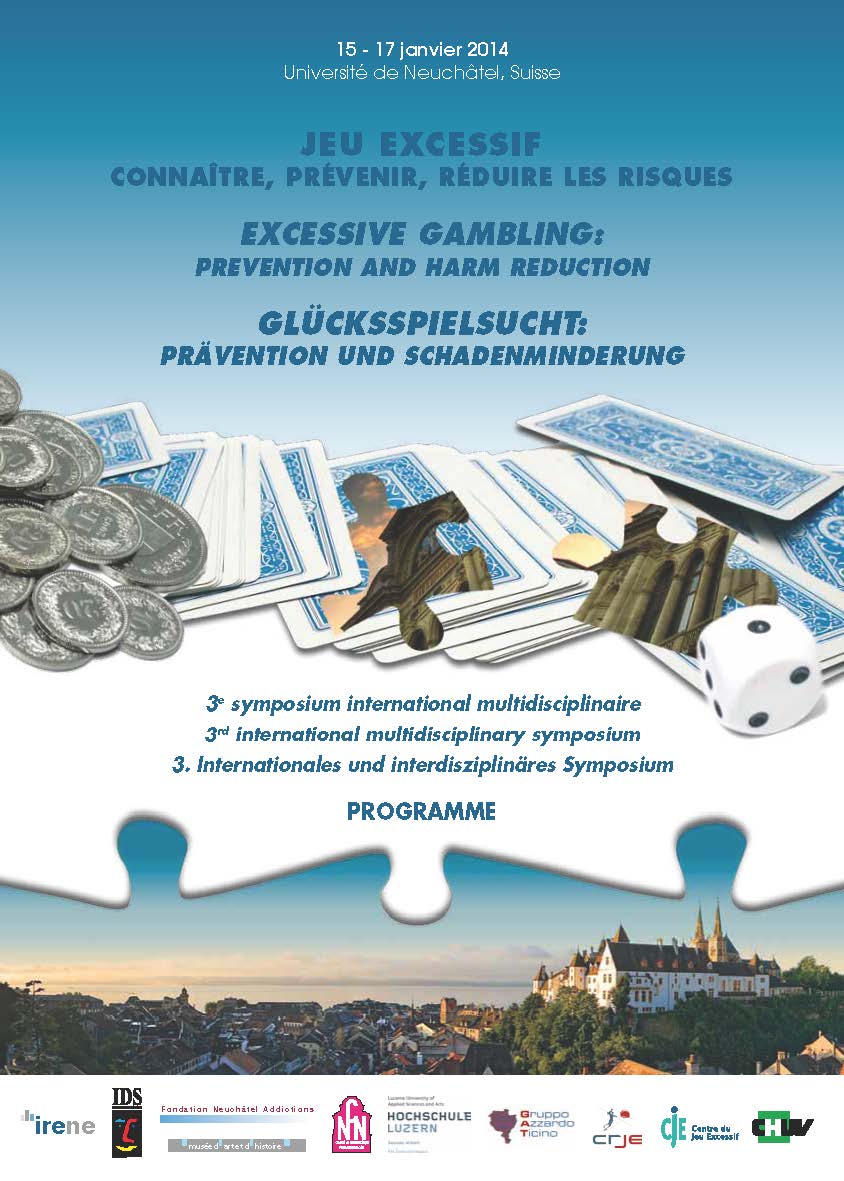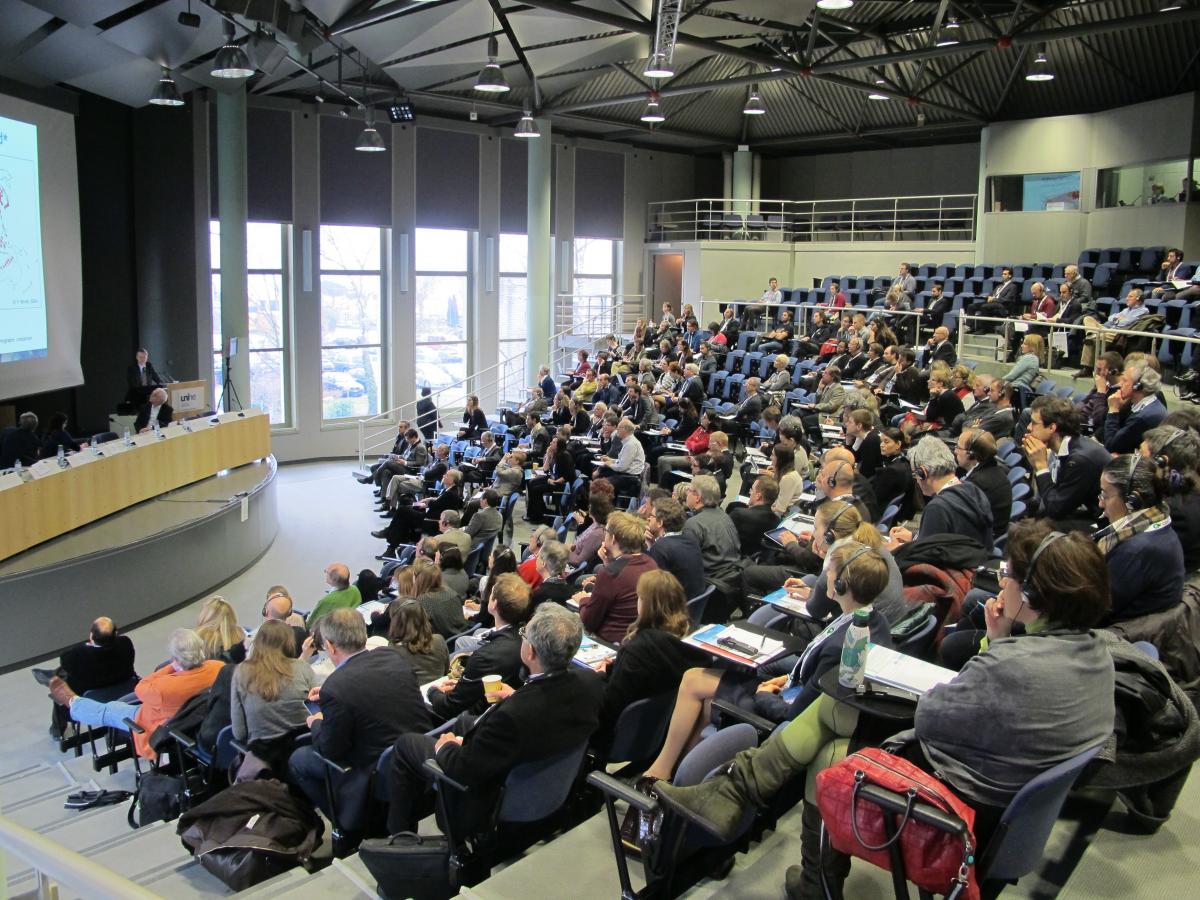Neuchâtel 2014
In the past the notion of prevention and risk- reduction (PRR) has been associated with the public health approach to illegal drugs. Relying on evidence-based indicators the PRR approach has been defined as programmes and practices to reduce the negative consequences of addictive behaviours upon health, social functioning and finances. Can this approach be applied to the field of behavioural addictions? This question will guide us during the third international multidisciplinary symposium on gambling addiction.
Caught in the dilemma between public income and public order, gambling-related problems have not received the same attention from government services as drug-related problems. Prevention efforts, coined social responsibility, are largely developed by the gaming industry, as part of their corporate policy. It is only secondarily that standards of regulation have been incorporated for the protection of the players. The proportion of gambling revenue derived from excessive gamblers remains little studied, if not taboo. However, this amount is an important indicator of the balance between retaining players by an attractive offer and reducing the financial consequences for problem gamblers and their relatives. All scientific disciplines concerned with gambling and addiction have to face the challenge of these political and economic developments.
|
|
The two-day programme draws upon the successful approach of the first two conferences,
«From law to action» and «Preventing gambling in an addictive society». These events were held in Lausanne, in 2005 and 2008. Special emphasis was placed upon parallel sessions, held in English. In the current event, sessions are also held in the national languages of the Confederation, bringing together the French-, German-, and Italian-speaking professional networks. Two round tables entitled «Risk reduction between public interest and public ethics» and «Which governance for the prevention of excessive gambling?» help to clarify the needs and priorities and to prepare a synthesis of the meeting.
In addition to support from the Centre Hospitalier Universitaire Vaudois, this third edition has relied on the involvement of several partners. These include leading institutions from the Canton of Neuchâtel.
We sincerely thank all who contributed towards the preparation of this event and wish you an excellent congress.
On behalf of the organising committees.
|



